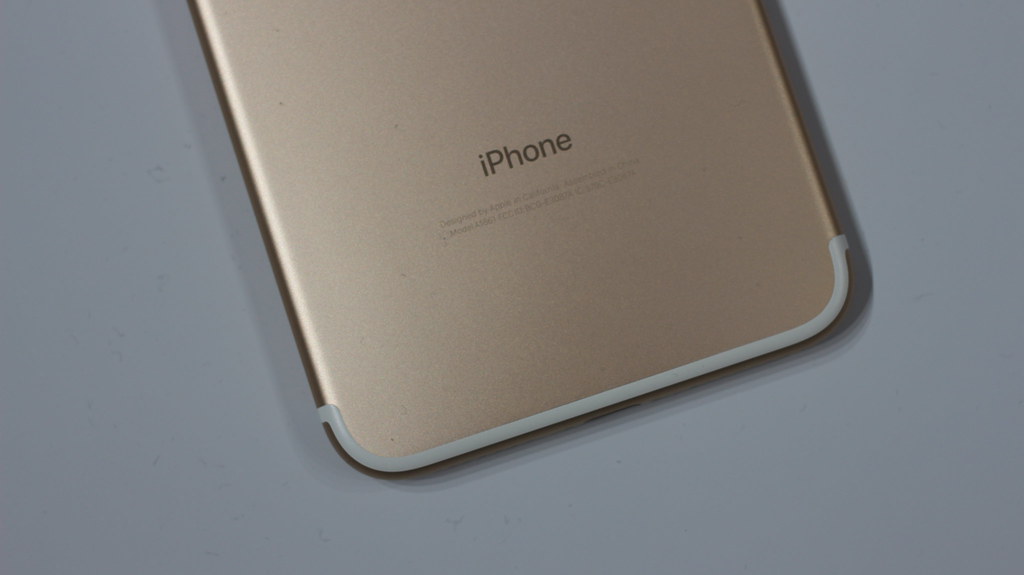Planned Obsolescence Part 5: Apple has likely been slowing down devices for much longer than they admit to
Anyone who has followed my blog over the years will know that I have been harping on about the planned obsolescence that most of the tech companies have built into their business models. In 2012, I ranted about how my upgrade to to iOS 5.0.1 led to significant slowdown in my original iPAD. Back then, I had a nagging suspicion that Apple was doing this deliberately to force owners like myself to upgrade with this seemingly dirty tactic.

The ironic thing was that, although many people were reporting similar issues, the clout of Apple then was so great, the trust levels so high than most people in the Apple fandom, including most in the media could not perceive of such a thing happening. Apple, after all was the wonder of the tech industry, dazzling many with their "magical" devices.
Fast forward to the present day, and oh how times have changed. Apple is embroiled in its own case of "battery-gate", after admitting to slowing down older iPhones. The circumstances around this disclosure indicate that Apple had very little choice but to cop to the dastardly act, only this time they had a seemingly benign explanation: they did it for the "good" of the consumer.
I am not going to delve into an analyses of Apple's reasoning, as this has been covered adequately on many blogs and news sites. My purpose here is to parse Apple's version of the scope of impacted devices. According to the official statement, they have been only doing this since last year, when they introduced this "feature" on the iPhone 6, 6S and SE. With that statement, Apple has seemingly relied on our collective short memory, as if not to recall that this has been happening for much longer, with even earlier devices. I can attest to how blazing fast my iPhone 4S was, and how unusable it has become now as it has slowed down to a crawl. My original iPad (yes I still have that device since it was built to withstand the zombie apocalypse) now feels like a very cheap imitation of the beast it used to be.

To be fair, Apple may not be deliberately slowing down these devices, however it could be a simple case of the old devices not being fast enough to handle the new iOS specs and app demands. But herein lies my concern, from my perspective as an earth citizen and environmentalist: Apple owes it to the consumer to and to the world to keep these devices running at an optimum level for a reasonable period, to break the relatively rapid cycle of obsolescence and to conserve the earth's limited resources needed to produce these vast quantities of technological products. The earth cannot sustain this cycle of wastage of resources all in the name of a yearly upgrade cycle. I understand the need to achieve new targets of success in the marketplace and to keep the stockholders happy. What I do not understand is why the quest to amass so much wealth at the expense of being socially or environmentally responsible. Secondly, Apple owes it to the consumers of their goods, to be realistic and truthful in the marketing of their products. Simply put, you cannot promise a magical product, only to turn it into a turd, a few month after purchase. That is disingenuous at best and this practice needs to be called out.
So it seems that Apple may yet be held accountable for its actions.
The saga continues...

The ironic thing was that, although many people were reporting similar issues, the clout of Apple then was so great, the trust levels so high than most people in the Apple fandom, including most in the media could not perceive of such a thing happening. Apple, after all was the wonder of the tech industry, dazzling many with their "magical" devices.
Fast forward to the present day, and oh how times have changed. Apple is embroiled in its own case of "battery-gate", after admitting to slowing down older iPhones. The circumstances around this disclosure indicate that Apple had very little choice but to cop to the dastardly act, only this time they had a seemingly benign explanation: they did it for the "good" of the consumer.
I am not going to delve into an analyses of Apple's reasoning, as this has been covered adequately on many blogs and news sites. My purpose here is to parse Apple's version of the scope of impacted devices. According to the official statement, they have been only doing this since last year, when they introduced this "feature" on the iPhone 6, 6S and SE. With that statement, Apple has seemingly relied on our collective short memory, as if not to recall that this has been happening for much longer, with even earlier devices. I can attest to how blazing fast my iPhone 4S was, and how unusable it has become now as it has slowed down to a crawl. My original iPad (yes I still have that device since it was built to withstand the zombie apocalypse) now feels like a very cheap imitation of the beast it used to be.

To be fair, Apple may not be deliberately slowing down these devices, however it could be a simple case of the old devices not being fast enough to handle the new iOS specs and app demands. But herein lies my concern, from my perspective as an earth citizen and environmentalist: Apple owes it to the consumer to and to the world to keep these devices running at an optimum level for a reasonable period, to break the relatively rapid cycle of obsolescence and to conserve the earth's limited resources needed to produce these vast quantities of technological products. The earth cannot sustain this cycle of wastage of resources all in the name of a yearly upgrade cycle. I understand the need to achieve new targets of success in the marketplace and to keep the stockholders happy. What I do not understand is why the quest to amass so much wealth at the expense of being socially or environmentally responsible. Secondly, Apple owes it to the consumers of their goods, to be realistic and truthful in the marketing of their products. Simply put, you cannot promise a magical product, only to turn it into a turd, a few month after purchase. That is disingenuous at best and this practice needs to be called out.
So it seems that Apple may yet be held accountable for its actions.
The saga continues...


Comments
Post a Comment